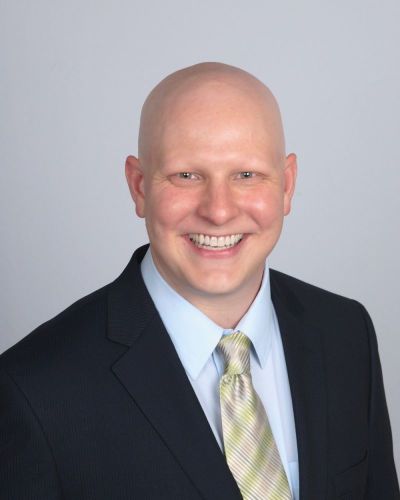Helping Our Children Come Out of Hiding to Accept God's Grace

Most of us hide. You might not think you are hiding, but that is probably because you don't know that you have been programmed, or conditioned, to hide. Your "programming" was so subtle that you do it without even realizing it. Hiding becomes an unconscious behavior we develop to remain safe, and it usually begins in early childhood.
In her book Feelings Buried Alive Never Die, therapist Karol Kuhn Truman describes how many of us as children have been:
. . . taught to shut off or close down the emotional facet of our being. We were programmed to deny feelings, to bury them. If our feelings were hurt or we didn't like something the way it was, we were taught to 'forget it;" "ignore it."
The truth is, we all wear masks. Somehow in life, we grow up learning that it's not really safe to tell the truth about ourselves. While our Christian families, communities, and churches place a high value on good behavior, they too often neglect a core part of our being: our emotions. When we cannot feel our emotions honestly and completely, we get stuck. We become afraid. We hide. We put on a mask.
As children, our parents and authority figures reward good behavior and punish bad behavior. Rather than accept us – and all of our feelings – unconditionally, parents usually praise positive attitudes and good performance. The better we perform, the more we are rewarded. The worse we behave, the greater the punishment.
When a toddler goes to the potty, he gets praised and is rewarded with a piece of candy for his good behavior. If he makes a mess or disobeys, he gets a timeout. If he hits, a toy is taken away. If he does something even more serious, he might get spanked.
Positive and negative reinforcement through rewards and consequences is what psychologists call behavioral therapy; it's a generally accepted practice used to help parents shape and mold behavior in their young children. It's also a common practice used with dogs: we train Fido to use the bathroom outside, and if he does, he gets a bone.
This animalistic approach is also utilized in our justice system. If you steal a car, you go to prison for a few months. If you sell drugs, they will lock you up for a few years. If you murder someone, you might be in jail for life. When a serious crime is committed, it rarely matters if you express remorse or say you are sorry. The consequences are still imposed based on the nature and gravity of the offense.
Sadly, prisoners are often treated like animals in correctional facilities to keep order. When they behave well, they get more privileges. When they fight, they get thrown into solitary confinement. If they behave well for an extended period of time, they are more likely to be eligible for parole. But if they cause trouble or continue to engage in poor behavior while in confinement, they will serve their entire sentence. Behavioral therapy is not complicated: good behaviors are rewarded, while bad behaviors are punished.
Fortunately, God's economy doesn't work that way. Jesus paid it all. His blood covers all of our sins, and our salvation is attained not by our good works, but by grace through faith. Paul tells us in the New Testament: "For it is by grace you have been saved, through faith — and this is not from yourselves, it is the gift of God — not by works, so that no one can boast (Ephesians 2: 8-9)."
Essentially, Paul is telling us that God wants us to look to Him, the source, for all of our needs. If we try to find the answers in ourselves, we elevate ourselves to His status. God made it clear in the Old Testament that our righteousness does not gain us a better place in Heaven or a higher spiritual status. "All of us have become like one who is unclean; and our righteous acts are like filthy rags (Isaiah 64:6)."
Now, I don't want readers to assume that all behavioral therapeutic approaches are inferior or useless. Some of these approaches can really be effective, especially when instilling discipline for kids and modeling good manners and kindness for others. But what we ultimately want for our children is that they become attached to us, parents, in a healthy way, and that those healthy attachments to parents later lead to healthy connections with friends and romantic partners.
Our children need to know that, just like God, we are not counting their sins. What really counts is our hearts. All that is required is that we believe Jesus saved us, ask for forgiveness, and turn away from our sinful behaviors. What God wants is for us to be in relationship with Him. When we are in relationship with Him, it's so much easier for us to accept His love and turn away from sin.
But when we levy shame on our children for their bad choices, they start to believe "I am bad." Instead of thinking of themselves as beloved children of God, they begin to carry around this negative core belief. It makes sense that their intuitive response would then be to withhold their whole self from us and others. In order to hide, they wear a mask, or put on a false self. In his book Changes That Heal: How to understand your past and ensure a healthier future, Dr. Henry Cloud discusses the real self versus the false self:
When the real self comes into relationship with God and others, an incredible dynamic is set into motion: we grow as God created us to grow. It is only when you are connected to the Head (Jesus Christ) and connected to others (the Body) that 'the whole body, supported and held together by its ligaments and sinews, grows as God causes it to grow' (Col. 2:19). A coming together of grace and truth in Jesus Christ is our only hope, and indeed it is a hope that does not disappoint.
Coming out of hiding means that we accept the truth about ourselves, take off our mask, and allow God's light and love to bring healing to our most wounded parts. We don't receive healing from our Lord when we pretend to be perfect or when we try to have it all together. He loves us in our weakness, in our sinfulness, in our brokenness. "But God demonstrates his own love for us in this: While we were still sinners, Christ died for us (Romans 5:8)."
When David was in the wilderness of Judah, he sang: "O God, You are my God; I shall seek You earnestly; My soul thirsts for You, my flesh yearns for You, In a dry and weary land where there is no water (Psalm 63:1)." Like David, we long to be known. We desire for God and others to see us and embrace our brokenness. We need to be seen and unconditionally loved for who we are, warts and all!
True spiritual intimacy occurs when we can stand before our Lord, naked and afraid, and allow Him to love us in our sin and shame. This kind of love is what God truly wants us to experience!
In my therapeutic work with families whose children are struggling with sexual and gender identity, I often face situations where one or more children have been so hurt by the dysfunctional patterns of behavior in the family system that they become detached from the family. This is usually accompanied by an addiction, or some other "rebellious" behavior, as the parents usually label it. Initially, the parents seem to obsess on this symptom, rather than look within themselves and the family to see where the child's wounds may have arisen that could be leading to the problem.
I recall one particular conversation with a family I worked with whose son was so angry with his parents over years of control, repression, and emotional suffering. After he finished college, he moved far away and let a mountain of school loan debt go into delinquency, leaving his parents, who had co-signed the loans, to clean up the mess. What was worse, the child was so hurting that he would lash out in anger at the father when he would occasionally call home.
As I began to chat more with the couple, the father (we'll call him Tom) expressed profound anger at his son's behavior. I understood the betrayal he felt, and I empathized while he expressed his hurt. But after a little while, I told him:
"Tom, do you understand how your response and treatment of your son for so many years may have led to this scenario? Now he's hurting, and you just want it to go away. You want to fix it. But what he really needs is your unconditional love; the kind of love God has for all of us. Even when we rebel, lash out in anger, or misbehave, God loves us, and His desire is for us to be in relationship with Him."
Tom nodded his head, as if to acknowledge that what I was said resonated with him. Then I continued:
"Imagine how much God loves us? He sent His son to die for us. He gave everything to us, and yet He knew that we would still rebel, sin, and behave wrongly. Yet, He still blesses us. He still loves us. He still gave us salvation. You see, there is nothing we can do to earn His love and salvation. That's the kind of love you need to show your son. That's the only kind of love that will heal his broken heart."
Tom mistakenly thought that if he could just fix the problems in his family and correct the behaviors in his children he didn't like, he could restore order and peace. Everything would be all right. But what he didn't realize was that he couldn't fix it. He couldn't heal their wounds. He could only change the way he responded to and demonstrated love to his children.
It wasn't about their good or bad behavior; it was about learning to love how God loves us. If Tom could love his son unconditionally, he would show him a glimpse of how much His Heavenly Father loved him, and no matter what his son did or didn't do, Tom would find peace knowing that he did all he could.
What I was trying to communicate to Tom is that we can never attain what a Holy God would require us to do to earn His love and salvation. While we may experience earthly consequences for our sins (and it appears that Tom and his family were experiencing those consequences) our salvation is not dependent upon our good behavior.
Neither could Tom's love be dependent on the behavior of his children. Only by demonstrating this love could he help heal his son's broken heart. He needed to learn to love how God loves us, unconditionally, with no limits.



























